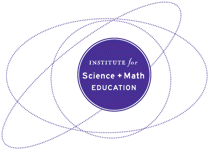Overview: How can we promote equity in science education?

- Teachers should work with colleagues to implement instructional strategies to make science learning experiences more inclusive for all students.
- District staff and PD providers should integrate a focus on equity and social justice into every teacher learning experience in relevant ways—and not treat diversity as a segregated topic.
- School leaders should promote a sustained focus on inclusive science instruction. Efforts should be made to resource and monitor equitable opportunities to learn science.
What is the Issue?
Equity should be prioritized as a central component in all educational improvement efforts. All students can and should learn complex science. However, achieving equity and social justice in science education is an ongoing challenge. Students from non-dominant communities often face "opportunity gaps" in their educational experience. Inclusive approaches to science instruction can reposition youth as meaningful participants in science learning and recognize their science-related assets and those of their communities.
Authors:
PHILIP BELL AND MEGAN BANG
Reflection Questions
- What are your short- and longterm goals in promoting equity and social justice in science? What are possible next steps?
- Think about the scientific phenomena you teach and the concepts you want students to understand. How do they relate to the interests and practices of your students' communities? How can you overlap instruction with the lives of students?
- Relate the teaching principles listed under "Attending to Equity" to your own practice.
- Do you involve those you serve (youth, families, communities) in your teaching decisions?
Things to Consider
- All individuals can learn complex science. The NRC Framework and NGSS vision is that all students will have access to high quality science learning opportunities and will be able to succeed in science.
- An "achievement gap" between students from low and high income backgrounds and from dominant and non-dominant communities persists in science—as in other subjects. Research indicates this largely results from inequalities in the opportunities youth have to learn science and failures to recognize and leverage the existing science-related competencies of youth and communities.
- The NRC Framework highlights how "all science learning can be understood as a cultural accomplishment." Research shows that a cultural perspective can transform learning experiences to make them more engaging and meaningful for learners. Informal learning environments can be particularly good at engaging youth from nondominant communities in science learning and identification.
- Research is showing that having a diversity of perspectives leads to more rigorous solutions. This diversity of perspectives can also be engaged to increase the sophistication of learning in the classroom.
"Equity in science education requires that all students are provided with equitable opportunities to learn science and become engaged in science and engineering practices; with access to quality space, equipment, and teachers to support and motivate that learning and engagement; and adequate time spent on science. In addition, the issue of connecting to students' interests and experiences is particularly important for broadening participation in science."
— NRC Framework, p. 28
Attending to Equity
(: Bang, Brown, Calabrese Barton, Rosebery & Warren, Toward more equitable learning in science, In Helping students make sense of the world using next generation science and engineering practices, NSTA.)
- Notice sensemaking repertoires. Consider students' diverse sensemaking as connecting to science practices.
- Support sensemaking. Support students to use their sensemaking repertoires and experiences as critical tools in engaging with science practices.
- Engage diverse sense-making. Students’ scientific practices and knowledge are always developing and their community histories, values, and practices contribute to scientific understanding and problem solving.
Recommended Actions You Can Take
- Review these case studies of instructional approaches and read about how to support equity in the NRC Framework and NGSS.
- Design learning experiences to grow out of the lives of learners. Broaden "what counts" as science and engineering in your teaching. The "scientific method" view of science is mistaken. Youth often engage in sense-making in out-of-school time in ways that relate to science. Communities routinely develop systematic knowledge about the natural world in relation to their interests and values.
- Collaborate with educators and community members who share an interest in implementing specific equity strategies in science.
ALSO SEE STEM TEACHING TOOLS
STEM Teaching Tools content copyright 2014-22 UW Institute for Science + Math Education. All rights reserved.
This site is primarily funded by the National Science Foundation (NSF) through Award #1920249 (previously through Awards #1238253 and #1854059). Opinions expressed are not those of any funding agency.
Work is licensed under a Creative Commons Attribution-ShareAlike 4.0 Unported License. Others may adapt with attribution. Funded by the National Science Foundation (NSF). Opinions expressed are not those of any funding agency.


 Email Feedback
Email Feedback


